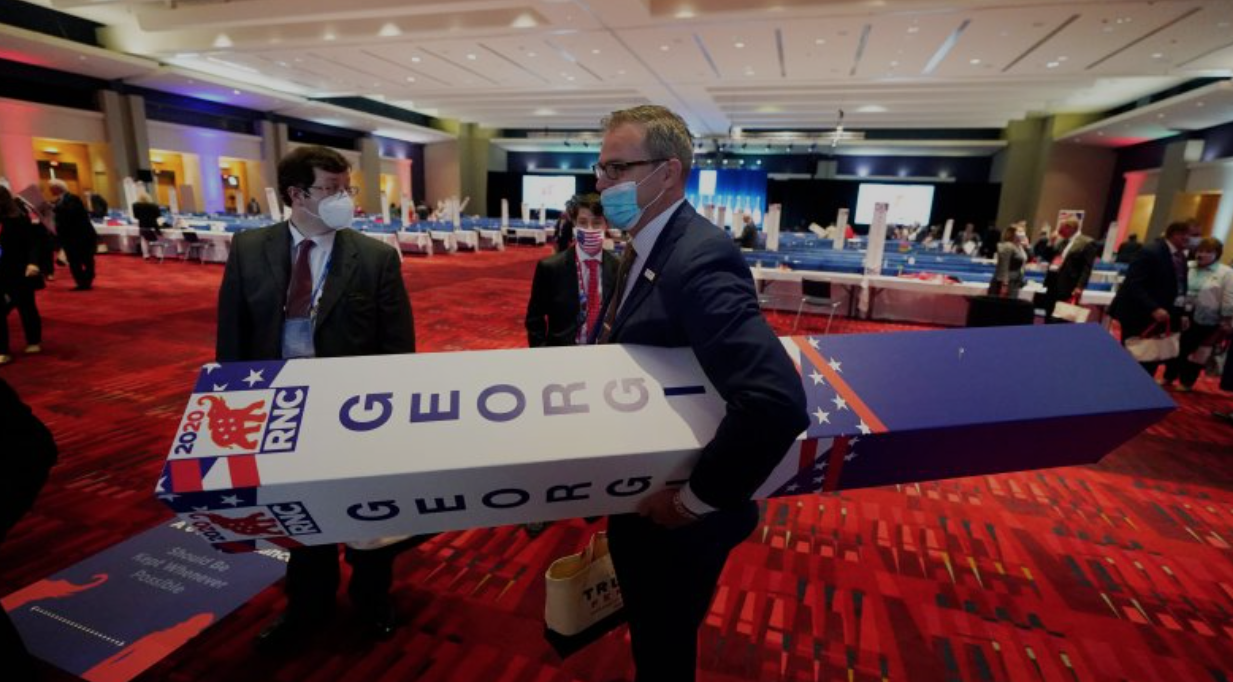In the American political system, citizens are called upon to elect or reelect their representatives in Congress every two years. Simultaneously, one-third of the senators, whose term in office is six years, is renewed. In addition to these elections, a significant proportion of governors and state government positions are elected or reelected. They are called midterm elections because they take place in the middle of the president’s term.
Generally, this great political electoral event becomes a critical moment for the Presidency, since the predominant tendency is that the President’s party loses seats in the legislature. But the results are highlighting certain differences with respect to that historical trend since there has not been a clear victory for the Republican Party. It is likely that the Republicans will win a majority in Congress or in the Senate, but there has not been a red tsunami, as expected by the most fervent critics of the current Democratic administration. It is even possible that the Democratic Party will maintain its slight lead in the Senate.
This would indicate that the election turned out to be much more competitive than expected in swing districts and states, and that the candidates supported by Donald Trump did not perform as strongly as expected. On the contrary, it would appear that fewer Trumpist Republican candidates performed better, leading some to conclude that the Trump brand has become more of a burden than a quality label.
It would seem that some politicians are now asking themselves whether it is not best to calm down certain tendencies in the Trumpist political discourse and his political positions. We are referring above all to the denial of the legitimacy of the current U.S. President, Joe Biden. Trumpism has sought to support this denial with unfounded arguments. It has been said that the electoral process that brought the Democrat to the presidency was affected by irregularities and fraudulent machinations, for which the results of the 2020 elections have been labeled as a “stolen election”. However, they have never been able to prove it. They have lost all the lawsuits in which they have tried to dispute the results. Post-election audits have found nothing. Thus, the alleged “stolen election” has been referred to as the “big lie”.
However, what is important is whether these midterm election results could lead to a shift in the Republican Party, distancing itself from the Trumpist political positioning and admitting that certain limits were overstepped. The strategy of Trumpism has been to keep a lie alive and turn it into a sort of watchword. Saying that there was fraud in 2020 has become an identity label that served to rally members in the Republican primaries, but ran into unexpected difficulties in trying to win over a broader electorate in the general election.
One of the warning signs is that with the “stolen election” argument we are entering a terrain where the veracity factor of any allegation no longer matters. To allow a step in that direction would imply that political discourse in one of the largest liberal democracies in the West would not assume the commitment to reflect, albeit from an ideological perspective, real situations and challenges that afflict society.
Thus, any ethical vestige would be renounced, and the leadership would abandon the responsibility of moderating the debate to surrender to the system of argumentative manipulations that today allow the dissemination of social networks and certain media. This is accompanied by a predominance of tactical positioning, dictated by communication strategy, opinion polls, and the need to differentiate oneself from the opponent. It is not even necessary to believe in one’s own political position but to assume it as a discursive tactic. Authenticity loses value.
This is perhaps the time to recall and praise a thorough Republican. In a debate during the 2008 presidential campaign, Republican Senator John McCain assured the audience (after hearing a participant say that he did not want his son to grow up in a country led by Barack Obama because he was linked to terrorism) that the opposing candidate was a decent person and had no ties to terrorism.
This example of moderation, leadership, and responsibility with respect to political discourse and positioning must be the model if the democratic process is to be safeguarded. Cynics will say that McCain lost the election. True, but he did not lose his mind.
*Translated from Spanish by Janaína Ruviaro da Silva











